275 MacLaren Street, Ottawa, ON K2P 0L9
Assessing the Barriers Associated with Diminished Client Transition Out of an Urban Indigenous Subsidized Housing Authority in a Small Prairie City
Research Start-up Summary and Abstract:
In 2012, Treaty 7 Urban Aboriginal Housing Authority (hereinafter Treaty 7 Housing), of Lethbridge, Alberta, initiated a homebuyer’s education project to advance its clients’ knowledge of the home buying process. In May 2012 the first phase concluded with several public workshops. During this project Treaty 7 Housing identified several internal limitations in its client intake policy, its recruitment strategies, its post-intake oversight, and in preparing clients to secure non-Treaty 7 Housing accommodations in a timely fashion. In lay terms, what Treaty 7 Housing administrators do not know is as follows: 1) what are the challenges confronting its clients upon moving into the city; 2) what do the clients hope to achieve with Treaty 7 Housing (i.e., is it viewed as less transitional housing and more permanent accommodations?); and, 3) why do current clients express apprehension about leaving Treaty 7 Housing? The key questions driving this research are as follows: how can Treaty 7 Housing administrators ease client rural-urban transition while alleviating anxiety associated with leaving subsidized housing? And how can programming be fashioned that effectively prepares folks for private home ownership or renting? With these ideas in mind the following project is proposed: a qualitative exploration of the barriers to Aboriginal urban acclimation as experienced by Treaty 7 Housing clients with the intention of improving Treaty 7 Housing staff’s ability to respond to its clients needs without alienating them as they are readied for home ownership/rental capacity.